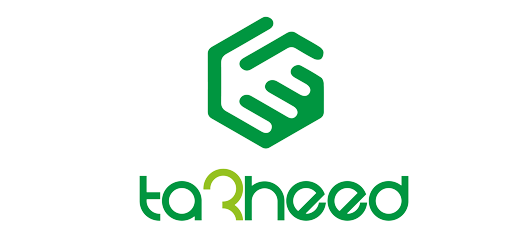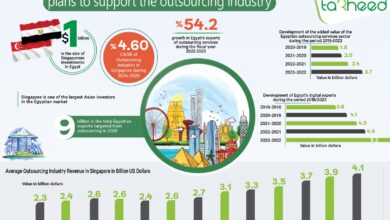
As technology advances and evolves, AI may become an important solution to problems facing outsourcing services, including security risks and slow response times.
In the following report, the information technology website “ciopages” reviewed 5 ways in which artificial intelligence will help improve IT outsourcing, meaning “outsourcing”, through improved automation, improved control, reduced costs, better contracts, and increased security.
Improved automation
The time it takes for outsourcing providers to respond to emergencies, such as an enterprise-wide system failure, can negatively impact productivity and, ultimately, the organization’s bottom line.
The ability to perform actions instantly is an important aspect of staying competitive in the business world, especially in outsourcing services, and AI technology can increase the speed of executable tasks to enhance automation.
But when AI is used, another result will be increased positive expectations for quick solutions, and the escalation of smarter outsourcing processes – this is inevitable because those on the buy side of the market are becoming more accustomed to smart software.
As Sarah Burnett, vice president of the Everest IT group, wrote: “Machine learning and deep learning in AI can enable automation, allowing software applications to learn rather than simply follow a programmed command.”
Understanding and decision making may be IT functions that can be outsourced to allow employees to work on higher-level projects or tasks.
For example, AI can make judgment-based decisions based on unstructured inputs, such as deciphering contract terms or invoices, and IT vendors that outsource AI implementation into their business models can offer enterprise solutions that have the ability to automatically interpret information with fewer errors than humans so that enterprise goals can be reached through increased productivity.
Tom Davenport, a professor at Babson College of Entrepreneurship in the United States, points out in his article in CIO Journal that the United States is the leading contender to bring offshore business operations back home, but to machines rather than humans.
This is because the country is a leader in automation and also a huge buyer of outsourcing business processes and IT services.
However, outsourcing companies, such as Wipro and Tata Consultancy Services (TCS), are incorporating AI technology by investing in these platforms to keep pace with automation.
More control
Adopting AI technology in the enterprise can shift control from the outsourcing company to the enterprise itself.
For example, technology leaders can evaluate the costs of outsourcing IT functions versus keeping them in-house when purchasing AI technology.
In addition, enterprise buyers may decide to license the technology rather than use external human resources.
AI technology reduces IT outsourcing costs because it is agile and because it processes, analyzes and understands information reliably and accurately.
Additionally, common hidden costs associated with outsourcing to an IT department, such as time required for on-the-job training, are reduced or eliminated.
These hidden costs can also be reduced thanks to the ability of AI technology to train itself on tasks through machine learning techniques such as deep learning.
Additionally, costs can be reduced because the technology does not have to be physically located in one place, as humans do. This factor can significantly reduce labor costs for suppliers who adopt an AI strategy into their business models.
Improve contracts and negotiable terms
AI opens up new opportunities for IT outsourcing that could impact existing terms of service and service level agreements.
It will also impact how CIOs negotiate contract terms. Cost will no longer be a sustainable competitive advantage because the combination of time, advances in technology, and increasing demand combine to create economies of scale, giving enterprise buyers more flexibility in pricing and terms.
However, CIOs and technology leaders should anticipate the impact that AI will have on contracts regarding technology ownership because it has the potential to tie an organization to a specific supplier.
The risk of data and information security breaches is a major factor in outsourcing IT.
Employees who may not be properly trained or have malicious intent can take advantage of vulnerabilities in your organization’s infrastructure, and outsourced employees may not prioritize sensitive data.
However, AI technology allows for services to be kept in-house as part of the company as a way to mitigate these risks.
AI can be used as a trusted resource when initially teaching the right actions to take.
As Rick Robinson, author of IBM’s “Security Intelligence,” points out in an article discussing the safety of using AI in business processes, current AI technology is focused on human intelligence, and AI can work with human experts to predict and identify security breaches.
This phenomenon is illustrated by MIT’s AI, which can predict more than three-quarters of cyberattacks with the help of human expert input and big data.
Using IT vendors that integrate AI technology, or provide the option to release the technology to your organization after a set licensing period, can mean increased security for your organization.
AI is transforming IT outsourcing by enhancing efficiency through automation, reducing costs, providing control, increasing security, and improving contract negotiation terms.
These capabilities will prompt technology leaders and CIOs to consider outsourcing to vendors with an AI strategy or, perhaps, forgo outsourcing altogether.







One Comment